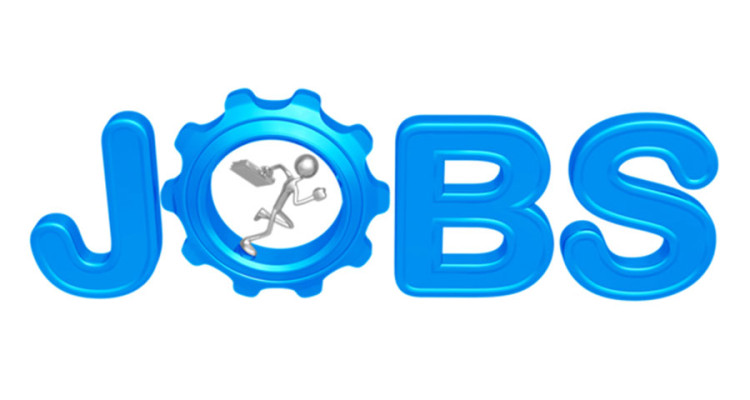Contents
The Micro Job Market is Booming
The Internet is notable for its ability to sustain the expansion and contraction of never-imagined markets on a daily basis. From EBay to Facebook to the bitcoin debate that is grabbing headlines today, economies and new market opportunities have risen from seemingly nowhere to command millions of dollars of revenue and tens of millions of new customers.
One such new economy and demand expanding right now is the micro job arena (also known as micro tasks), the result of the exploding power of digital advertising coupled with the rapid spread of smartphone devices the world over. Micro jobs, to put it simply, could also be known as “mouse-click” tasks; that is, tasks that people can accomplish by sitting at their computer or with their phone or tablet. In these early days of the market, the majority of tasks of this type center around the procurement of likes or followers on social media networks including Facebook, Twitter, and YouTube primarily. However, such web-based activities as contest votes, comments on pages, links or re-links on highly-visited blogs, or reviews of products and services also fall under this micro job realm.
Do Your Clicking Chores
At the forefront of this emerging economy are networks like ClickChores (www.clickchores.com), sites that merge the community aspect of a social media network with the freelance interface popularized by worker communities like ODesk. The result is a surprisingly clean and easy-to-use interface that matches potential employers (i.e. advertising or marketing folks who need to grow their company’s digital media presence) with potential employees (i.e. anyone who thinks making money by clicking their mouse might not be a bad way to spend some hours). ClickChores takes small percentages of transactions and withdrawals, as well as offering fees to “feature” jobs and workers prominently on their page.
While the $.10-$1 average job rate may not excite many looking to supplement their incomes in a big way now, the appeal to international workers (who are more than capable of creating social media accounts and sharing links) has been demonstrated by ClickChores’ community, which has grown to over six thousand active members in just over a year of existence. To date, the company has seen over six hundred individual job types posted and completed by workers, and has taken innovative steps through social media and incentive offerings to continue growing their footprint on the industry, well ahead of most major competitors in what could be a potentially limitless international market.
The S.W.O.T. Analysis
Strengths
- Established and well-designed social media presence. The nature of ClickChores business allows for extensive interaction between its workers and the company through social media.
- Unidentified market cap. With digital advertising becoming a central focus of both tech companies and marketing execs in the coming years, the need for “micro tasks” to grow social media presence seems limitless
- Low overhead and liability risk, due to the company’s presence as essentially a middle man that serves as a link between potential employer and employee
Weaknesses
- Revenue is dependent on large numbers of tasks being done on a daily/weekly basis, and while job posting and completion has been consistent, ClickChores still falls short of the volume required to make the company a revenue lion long-term
- Growing competition both domestically (fiverr) and internationally (Minute Workers) ensure that if the market remains limited, potential for growth and profit remain limited as well
Opportunities
- Large companies have just begun to understand the trust associated with large social media followings; as such, they are just beginning to dip into the micro jobs market
- ClickChores’ growth has been accompanied by essentially no advertising or marketing from the company itself. Marketing saturation through social media and online forums could lead to rapid growth in domestic and international markets
Threats
- The market just came into existence, and as such the limits for success and growth are unknown as of yet. If digital advertising changes or shifts from its current model, ClickChores as a service could become obsolete
- Competitors with more funding could saturate or control markets before ClickChores can reach them, severely limiting the market cap
Takeaways
ClickChores is an especially interesting case study for entrepreneurs, in that the market it is designed to take advantage of is brand new, and in that the company is still searching to fully prove its business model works. However, as entrepreneurs we can study ClickChores’ approach to identifying and growing a market it is anticipating as an interesting test case to study before doing the same in our own ventures.
ClickChores’ blending of proven good ideas, while stripping away as much risk as possible, is an essential lesson every entrepreneur can learn from. By modeling their freelancing platform (including the ever-hairy areas of payment processing and personal information collection) on a proven model like ODesk, which has demonstrated its effectiveness while also identifying and removing many of the inherent risks, allowed ClickChores to provide effective payment processing and identity protection from day one. As such, although the brand is newer than some of its competitors, ClickChores was able to control the valuable word-of-mouth (or word-of-blog-post) and ensure customers that the company was reliable and efficient. This is especially essential in a new market, where customers have little experience in what to anticipate for their money and where customer experience itself is essential to growing the brand. ClickChores has done this at an impressive clip so far, leaving us all a clear path to growing our own businesses.
Removing liability is another essential lesson that we can learn from ClickChores’ story so far. Guaranteeing employee work, or employer satisfaction, is the essential question that has plagued all aspects of the service networking economy, be they sharing rooms (Airbnb), rides (Lyft), cabs (UberCab), or work (ClickChores). By presenting itself in the Craigslist model of a middle-man platform which passes its risk onto users, ClickChores has shielded itself from the liability questions that plague some of its aforementioned peers.
So whether you’re looking to exploit an emerging market, or simply anticipate where a new one may arise, ClickChores has some takeaways for you. While it remains to be seen how high the company can rise, and how large the market it serves will grow, the company already serves as another good place for future entrepreneurs to look for lessons we can bring to our own ventures.
If you enjoyed this story, don’t be stingy. Share it with others please 🙂


















